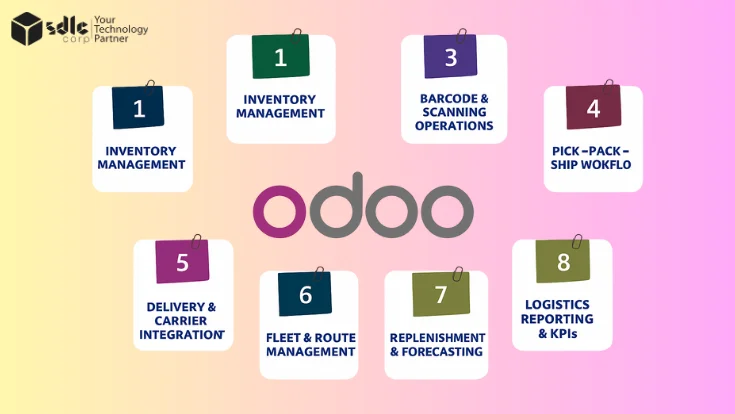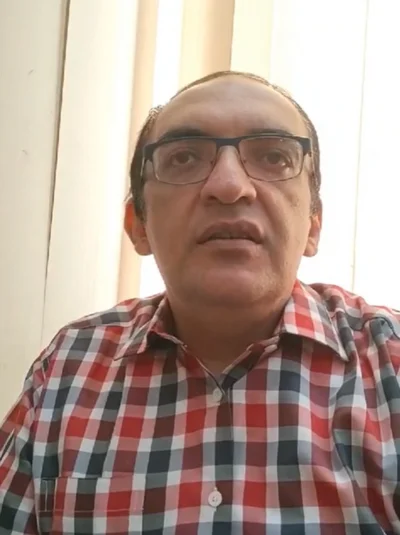Introduction
India’s rapidly growing gaming and betting industry has attracted both domestic entrepreneurs and international investors. Yet, securing a valid gambling license in India including a casino license India is essential to operate within the law and build credibility.
This guide outlines Indian gambling regulation, details each license type, and walks you through the application process, compliance requirements, and official resources to help you get started.
What Is a Gambling License?
A gambling license is an official authorization granted by a governmental or regulatory authority that allows an individual or company to legally operate gambling activities within a specified jurisdiction.
In the context of India, a gambling license:
Legalizes your gambling or gaming operations (physical or online).
Ensures compliance with state-specific gambling laws.
Provides regulatory protection for operators and consumers.
Builds credibility and trustworthiness for your business.
Enables you to advertise, process payments, and partner with affiliates legally.
Depending on the state and game type, the license may cover:
Land-based casinos
Online casinos or sports betting
Skill-based online games (like Rummy or Fantasy Sports)
Lottery operations
Step 1: Understand the Legal Landscape in India

Before diving into licensing, it’s essential to understand that India has no central law governing gambling. Instead, gambling is governed at the state level, meaning:
Some states permit and regulate gambling activities (e.g., Sikkim, Goa, Nagaland).
Others strictly prohibit it (e.g., Gujarat, Telangana).
The Public Gambling Act of 1867 is the central legislation that criminalizes physical gambling houses but does not explicitly mention online gambling. However, online skill-based gaming (like Rummy and Fantasy Sports) has been legalized in some states through state-specific acts.
Step 2: Decide the Type of Game You Want to Offer

India classifies games into two categories:
1. Game of Skill (Legal in several states)
Outcome depends on knowledge, strategy, practice, or skill.
Examples: Rummy, Fantasy Sports, Chess, Poker (in some states).
Usually allowed and easier to license under Nagaland regulations.
2. Game of Chance (Highly regulated or prohibited)
Outcome determined primarily by luck or random events.
Examples: Slot machines, sports betting, roulette.
Requires a license from states like Goa or Sikkim.
Step 3: Choose the Right State for Licensing

Only a few Indian states offer formal gambling or gaming licenses. Here’s a breakdown:
Nagaland – For Online Skill-Based Gaming
Governs online games of skill under The Nagaland Online Games of Skill Act, 2016.
Suitable for rummy, poker, fantasy sports, quizzes, chess, etc.
Visit: Nagaland Jurisdiction
Sikkim – For Online & Land-Based Casino and Sports Betting
Regulated under Sikkim Online Gaming (Regulation) Act, 2008.
Issues online gambling licenses, including sports betting and casino games.
Only permits access within Sikkim (though enforcement varies).
Goa – For Physical Casino License
Allows land-based casinos and riverboat casinos.
No official online casino license system.
Governed by The Goa, Daman and Diu Public Gambling Act, 1976.
Step 4: Register a Business Entity in India

Before applying for a license, you must register a business in India. This provides legal backing for your application.
Steps:
Choose a business structure Ideally, a Private Limited Company or LLP (Limited Liability Partnership).
Register with the Ministry of Corporate Affairs (MCA)
Obtain:
Company PAN & TAN
GST registration
Bank account in India
Registered office address
Step 5: Prepare Your License Application Package

Once the business is registered, start preparing your documentation. This will be submitted to the state licensing authority.
Common Documentation Includes:
Company registration certificate (from MCA)
PAN, GST, and business address proof
Shareholding and directorship structure
Complete business plan and financial projections
Game description and logic (especially for skill-based games)
RNG (Random Number Generator) Certification (for chance-based games)
AML (Anti-Money Laundering) & KYC (Know Your Customer) policies
Responsible gaming framework
Cybersecurity compliance report
Hosting and data server details (must comply with Indian IT law)
Step 6: Submit Your Application to the Appropriate State Authority

Each state has its designated authority to accept and process gambling license applications.
Where to Apply:
Nagaland: Directorate of State Lotteries or Finance Department
Apply via: Nagaland Jurisdiction
Sikkim: Department of Finance, Revenue & Expenditure
Apply via: Sikkim Jurisdiction
Goa: Office of the Home Department or State Lotteries
Submission Modes:
Some states offer online portals; others may require physical submission with notarized documents.
Step 7: Pay the Application & Licensing Fees

Each state charges a non-refundable application fee and an annual license fee. Fees vary by game type and expected annual revenue.
| State | Application Fee | Annual License Fee |
|---|---|---|
| Nagaland | ₹50,000 | ₹100,000 – ₹1,000,000 (based on categories) |
| Sikkim | ₹100,000+ | ₹2,000,000+ |
| Goa | ₹200,000+ | ₹5,000,000+ (for land-based casinos) |
Additional costs may include:
Legal consultant fees
RNG and cybersecurity audits
Hosting and compliance tools
Step 8: Undergo Compliance, Technical & Background Checks

Once you submit your application, authorities will conduct detailed evaluations:
What They Will Review:
Game structure and logic (skill vs. chance analysis)
RNG or game fairness certification
Director background and criminal checks
Security architecture (data encryption, fraud prevention)
Financial and tax compliance documents
Step 9: Receive the Gambling License

After successful evaluation, the authority will issue your gambling license valid for 1 to 5 years, depending on the jurisdiction.
The license includes:
License number
Validity period
Category/type of games allowed
Jurisdictional limitations
You can now legally launch your gaming or gambling operation.
Step 10: Maintain Ongoing Legal & Operational Compliance

our work doesn’t stop after obtaining the license. To retain your legal status, ongoing compliance is mandatory.
Regular Tasks:
Quarterly reporting to the licensing authority
Updated KYC/AML logs
Annual IT security audits
Tax filings and GST compliance
Player dispute resolution and responsible gaming reports
To get started, fill out our form for help with your gambling license application.
International Comparison: Why India?
Here’s why India is increasingly attracting global operators:
| Country | Regulation | Cost | Entry Barrier |
|---|---|---|---|
| India | State-based | Low–Medium | Moderate |
| UK | UKGC | High | High |
| Malta | MGA | Medium | Moderate |
| Philippines | PAGCOR | Medium | Moderate |
| Singapore | CRA | High | High |
India offers low setup cost and high market potential for skill-based operators.
Where Is Gambling Legal, Restricted, or Banned in India?
India’s gambling landscape is fragmented, with each state having the power to regulate or prohibit gambling within its territory. This creates a patchwork of laws that operators must navigate carefully.
Below is a state-wise overview to help you understand where you can legally offer gambling or gaming services and where you cannot:
1. States Where Gambling Is Legal (with Regulations)
These states have specific laws allowing regulated gambling activities:
Goa
Legal land-based and riverboat casinos operate under the Goa, Daman and Diu Public Gambling Act, 1976.
Only designated areas and licensed operators can offer casino services.
Sikkim
Permits online gaming licenses for casino and sports betting (limited to Sikkim residents).
Land-based casinos are also regulated under state law.
Nagaland
Allows online skill-based gaming licenses under Nagaland Prohibition of Gambling and Promotion and Regulation of Online Games of Skill Act, 2016.
Rummy, Poker, Fantasy Sports, and other skill games are covered.
2. States with Partial Restrictions or Lotteries Only
Some states do not allow casinos or betting but permit lottery operations or horse racing:
Maharashtra
Bans gambling under the Bombay Prevention of Gambling Act, 1887.
Lotteries are allowed under the Lotteries (Regulation) Act, 1998.
Kerala
Casinos and betting are banned, but state-run lotteries are legal and popular.
West Bengal
Casinos are banned, but horse racing and lotteries are legal.
Punjab & Haryana
Gambling is generally banned, with limited exceptions for lotteries.
3. States Where Gambling Is Strictly Banned
These states have total or near-total prohibition on gambling activities, including online gambling:
Gujarat
Gambling banned under the Bombay Prevention of Gambling Act extended to Gujarat.
No licensing provisions for any form of gambling.
Tamil Nadu
Tamil Nadu Gaming Act prohibits all forms of gambling and betting.
In 2021, laws were passed to ban online gaming for stakes, though some court challenges continue.
Telangana
Telangana State Gaming (Amendment) Ordinance, 2017 bans all forms of gambling and betting, including online.
Andhra Pradesh
Similar amendments ban online gaming for stakes and chance-based gambling.
Tips to Get Your Gambling License Faster
Start with a skill-based gaming license easier approval in Nagaland.
Partner with legal experts for state-specific compliance.
Invest in a secure tech stack with RNG & encryption.
Avoid grey areas like cryptocurrency or offshore hosting.
Stay updated on Supreme Court rulings and gaming regulatory body India developments.
Future of Gambling in India
India may soon introduce a central regulatory body for online gaming. In 2023, the IT Ministry introduced:
Mandatory self-regulatory organizations (SROs)
KYC norms for online real-money platforms
Advertising disclaimers
This indicates India is preparing for full online gambling regulation, making now the best time to secure a gaming license in India legally.
Conclusion: Your Gateway to India’s Gambling Market
Obtaining a gambling license in India requires careful preparation and a clear understanding of Indian gambling regulation. With proper documentation and a disciplined compliance approach, your business can confidently launch gaming, betting, or casino operations in India.
Use this guide as a reference point to move forward with your licensing journey, ensuring every step aligns with India’s evolving regulations.
SDLC Corp helps you secure gambling licenses in India, from registration to compliance, so you can launch your gaming business legally and confidently.
FAQ's
Is gambling legal in India?
Gambling in India is regulated at the state level, not centrally. Some states like Sikkim, Goa, and Nagaland allow licensed gambling, while others prohibit it. Online skill-based games are legal in certain states.
How can I apply for a gambling license in India?
You must choose a state with a legal gambling framework, register a business entity, prepare required documentation, and submit your application to the respective state authority (e.g., Nagaland or Sikkim). Approval involves compliance checks and fee payments.
Which states offer legal gambling licenses in India?
Currently, Sikkim, Nagaland, and Goa are the key states offering gambling or gaming licenses. Nagaland issues skill-based online gaming licenses, while Sikkim and Goa allow casino operations.
What is the difference between skill-based and chance-based games?
Skill-based games depend on logic and strategy (e.g., Rummy, Chess), and are generally legal. Chance-based games rely on luck (e.g., Roulette, Slots), and are allowed only with specific state licenses.
How much does it cost to get a gambling license in India?
The cost varies by state and game type. Application fees range from ₹50,000–₹200,000, while annual license fees can range from ₹100,000 to ₹5,000,000 or more. Additional costs include audits and legal services.
Can SDLC CORP handle end-to-end development?
Yes, SDLC CORP handles end-to-end development, from concept to deployment. We cover design, coding, testing, and post-launch support for complete project delivery.



















